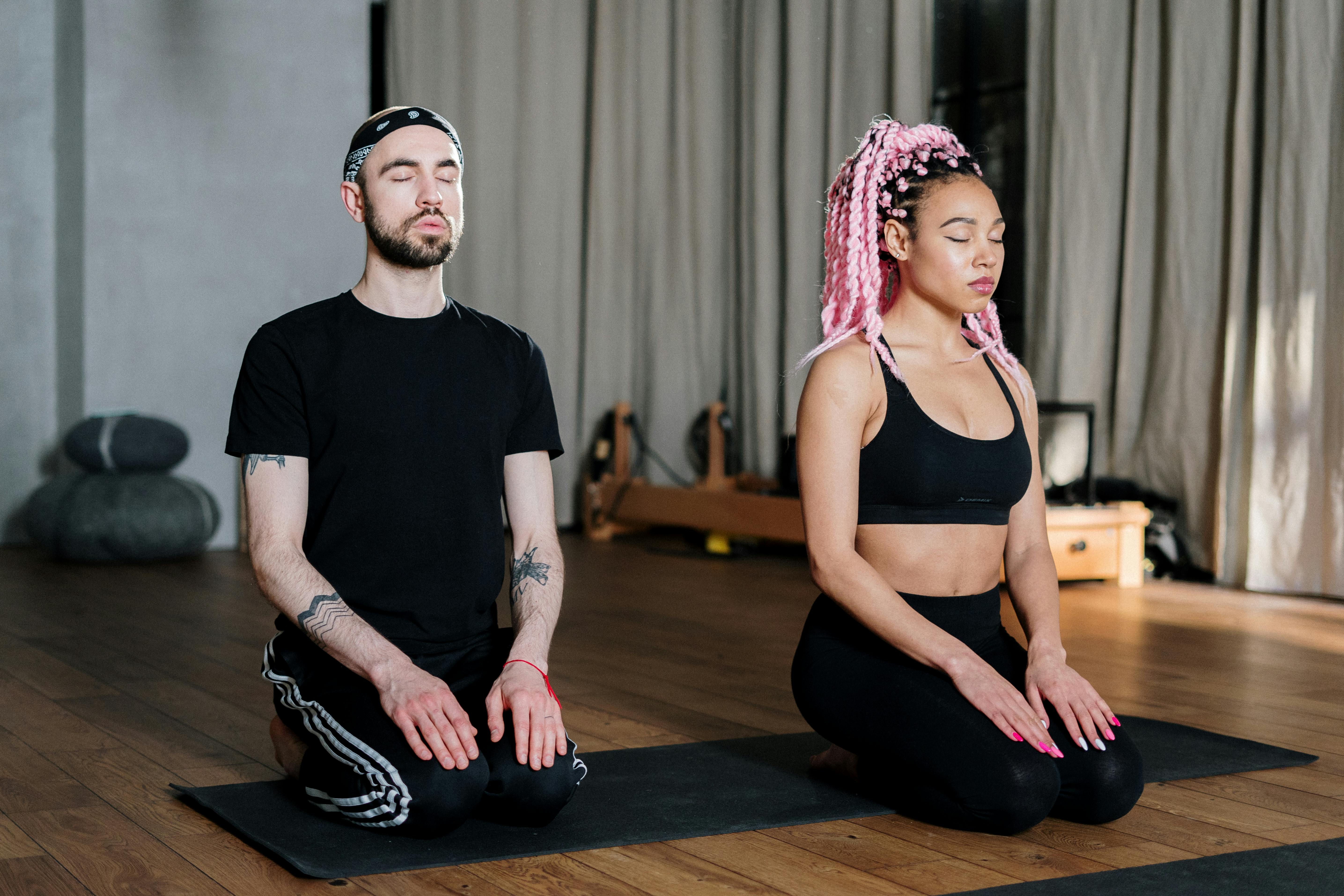



Medication and therapy are good ways to manage your ADHD symptoms. But they're not your only options. Research now shows that mindfulness meditation where you actively observe your moment-to-moment thoughts and feelings may also be a good way to calm your mind and improve your focus.
More than a third of adults with ADHD use this practice, and about 40% give it high ratings, according to a 2017 survey by ADDitude magazine.
Unlike other treatments, mindfulness meditation doesn't need a prescription or a trip to a therapist's office. You can practice it sitting or walking, or even through some types of yoga.
How It Works
When a specific muscle is weak, you can do exercises to make it stronger. The same thing is true for your brain.
Mindfulness meditation strengthens your ability to control your attention. It teaches you how to observe yourself and to focus on something. And it trains you to bring your wandering mind back into the moment when you get distracted. It can also make you more aware of your emotions so you're less likely to act impulsively.
Meditation is thought to help with ADHD because it thickens your prefrontal cortex, a part of your brain that's involved in focus, planning, and impulse control. It also raises your brain's level of dopamine, which is in short supply in ADHD brains.
Research shows that mindfulness meditation can be very helpful in relieving ADHD symptoms. One landmark UCLA study found that people with ADHD who attended a mindfulness meditation session once a week for 2 1/2 hours, then completed a daily home meditation practice that gradually increased from 5 to 15 minutes over 8 weeks, were better able to stay focused on tasks. They were also less depressed and anxious. Other studies since then have had similar results.
Yoga has been shown to help improve ADHD symptoms, too, although most of the research has been done with children. Like mindfulness meditation, it ups dopamine levels and strengthens the prefrontal cortex. One study found that kids who practiced yoga moves for 20 minutes twice a week for 8 weeks improved on tests that measure attention and focus.
Other Benefits
Beyond helping with their symptoms, this type of relaxation technique can also help people with ADHD:
Boost self-esteem
Lower stress
Lose weight
Because people with ADHD may have trouble getting stuff done on time and can be forgetful, they tend to be very critical of themselves. But you can use meditation as a tool to tune out the judgmental voice in your head.
People who regularly do mindfulness meditation have been found to have lower levels of stress hormones when they're in settings or situations that cause anxiety, like when you feel helpless and out of control.
Research also shows that mindfulness meditation can lead to shedding pounds, probably because it encourages you to think more carefully about everything you're doing, including what you eat.
Tips for Meditating With ADHD
Are too many things running through your mind? Picture a blue sky with fluffy white clouds. The sky represents your awareness; the clouds represent your thoughts. Focus on the moments of "space" between the clouds to redirect yourself.
If you have trouble staying still, a moving meditation as you walk slowly can be just as good as a sitting version. When your mind wanders, gently bring your attention back to the sensations on the soles of your feet.
Create some cues to help make it a regular habit. Mark it down in your calendar, or set your phone to remind you at a specific time.
Just like having a buddy to keep you company during workouts can make exercise easier, having someone to do meditation or yoga with can help you to stick with it.
the webMD (https://www.webmd.com/add-adhd/adhd-mindfulness-meditation-yoga) is a great site to read articles and other types of information related to wellness, health and medicine.
Medication and therapy are good ways to manage your ADHD symptoms. But they're not your only options. Research now shows that mindfulness meditation where you actively observe your moment-to-moment thoughts and feelings may also be a good way to calm your mind and improve your focus.
More than a third of adults with ADHD use this practice, and about 40% give it high ratings, according to a 2017 survey by ADDitude magazine.
Unlike other treatments, mindfulness meditation doesn't need a prescription or a trip to a therapist's office. You can practice it sitting or walking, or even through some types of yoga.
How It Works
When a specific muscle is weak, you can do exercises to make it stronger. The same thing is true for your brain.
Mindfulness meditation strengthens your ability to control your attention. It teaches you how to observe yourself and to focus on something. And it trains you to bring your wandering mind back into the moment when you get distracted. It can also make you more aware of your emotions so you're less likely to act impulsively.
Meditation is thought to help with ADHD because it thickens your prefrontal cortex, a part of your brain that's involved in focus, planning, and impulse control. It also raises your brain's level of dopamine, which is in short supply in ADHD brains.
Research shows that mindfulness meditation can be very helpful in relieving ADHD symptoms. One landmark UCLA study found that people with ADHD who attended a mindfulness meditation session once a week for 2 1/2 hours, then completed a daily home meditation practice that gradually increased from 5 to 15 minutes over 8 weeks, were better able to stay focused on tasks. They were also less depressed and anxious. Other studies since then have had similar results.
Yoga has been shown to help improve ADHD symptoms, too, although most of the research has been done with children. Like mindfulness meditation, it ups dopamine levels and strengthens the prefrontal cortex. One study found that kids who practiced yoga moves for 20 minutes twice a week for 8 weeks improved on tests that measure attention and focus.
Other Benefits
Beyond helping with their symptoms, this type of relaxation technique can also help people with ADHD:
Boost self-esteem
Lower stress
Lose weight
Because people with ADHD may have trouble getting stuff done on time and can be forgetful, they tend to be very critical of themselves. But you can use meditation as a tool to tune out the judgmental voice in your head.
People who regularly do mindfulness meditation have been found to have lower levels of stress hormones when they're in settings or situations that cause anxiety, like when you feel helpless and out of control.
Research also shows that mindfulness meditation can lead to shedding pounds, probably because it encourages you to think more carefully about everything you're doing, including what you eat.
Tips for Meditating With ADHD
Are too many things running through your mind? Picture a blue sky with fluffy white clouds. The sky represents your awareness; the clouds represent your thoughts. Focus on the moments of "space" between the clouds to redirect yourself.
If you have trouble staying still, a moving meditation as you walk slowly can be just as good as a sitting version. When your mind wanders, gently bring your attention back to the sensations on the soles of your feet.
Create some cues to help make it a regular habit. Mark it down in your calendar, or set your phone to remind you at a specific time.
Just like having a buddy to keep you company during workouts can make exercise easier, having someone to do meditation or yoga with can help you to stick with it.
the webMD (https://www.webmd.com/add-adhd/adhd-mindfulness-meditation-yoga) is a great site to read articles and other types of information related to wellness, health and medicine.
Medication and therapy are good ways to manage your ADHD symptoms. But they're not your only options. Research now shows that mindfulness meditation where you actively observe your moment-to-moment thoughts and feelings may also be a good way to calm your mind and improve your focus.
More than a third of adults with ADHD use this practice, and about 40% give it high ratings, according to a 2017 survey by ADDitude magazine.
Unlike other treatments, mindfulness meditation doesn't need a prescription or a trip to a therapist's office. You can practice it sitting or walking, or even through some types of yoga.
How It Works
When a specific muscle is weak, you can do exercises to make it stronger. The same thing is true for your brain.
Mindfulness meditation strengthens your ability to control your attention. It teaches you how to observe yourself and to focus on something. And it trains you to bring your wandering mind back into the moment when you get distracted. It can also make you more aware of your emotions so you're less likely to act impulsively.
Meditation is thought to help with ADHD because it thickens your prefrontal cortex, a part of your brain that's involved in focus, planning, and impulse control. It also raises your brain's level of dopamine, which is in short supply in ADHD brains.
Research shows that mindfulness meditation can be very helpful in relieving ADHD symptoms. One landmark UCLA study found that people with ADHD who attended a mindfulness meditation session once a week for 2 1/2 hours, then completed a daily home meditation practice that gradually increased from 5 to 15 minutes over 8 weeks, were better able to stay focused on tasks. They were also less depressed and anxious. Other studies since then have had similar results.
Yoga has been shown to help improve ADHD symptoms, too, although most of the research has been done with children. Like mindfulness meditation, it ups dopamine levels and strengthens the prefrontal cortex. One study found that kids who practiced yoga moves for 20 minutes twice a week for 8 weeks improved on tests that measure attention and focus.
Other Benefits
Beyond helping with their symptoms, this type of relaxation technique can also help people with ADHD:
Boost self-esteem
Lower stress
Lose weight
Because people with ADHD may have trouble getting stuff done on time and can be forgetful, they tend to be very critical of themselves. But you can use meditation as a tool to tune out the judgmental voice in your head.
People who regularly do mindfulness meditation have been found to have lower levels of stress hormones when they're in settings or situations that cause anxiety, like when you feel helpless and out of control.
Research also shows that mindfulness meditation can lead to shedding pounds, probably because it encourages you to think more carefully about everything you're doing, including what you eat.
Tips for Meditating With ADHD
Are too many things running through your mind? Picture a blue sky with fluffy white clouds. The sky represents your awareness; the clouds represent your thoughts. Focus on the moments of "space" between the clouds to redirect yourself.
If you have trouble staying still, a moving meditation as you walk slowly can be just as good as a sitting version. When your mind wanders, gently bring your attention back to the sensations on the soles of your feet.
Create some cues to help make it a regular habit. Mark it down in your calendar, or set your phone to remind you at a specific time.
Just like having a buddy to keep you company during workouts can make exercise easier, having someone to do meditation or yoga with can help you to stick with it.
the webMD (https://www.webmd.com/add-adhd/adhd-mindfulness-meditation-yoga) is a great site to read articles and other types of information related to wellness, health and medicine.

